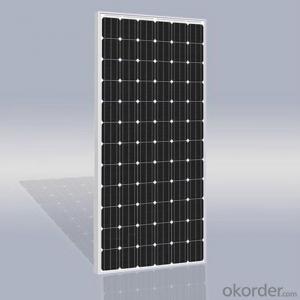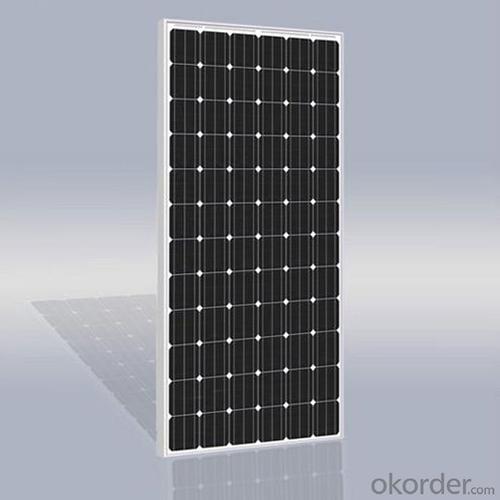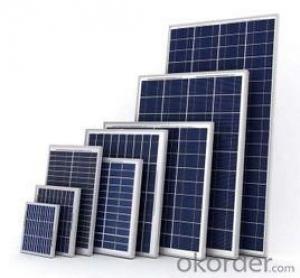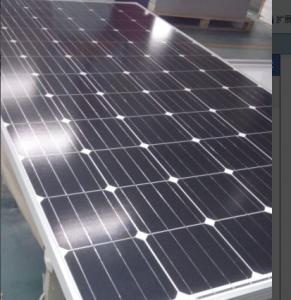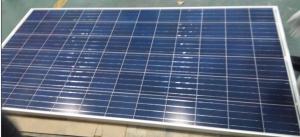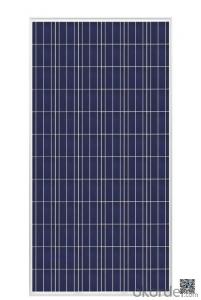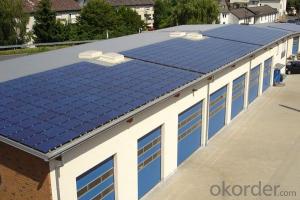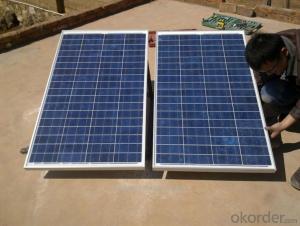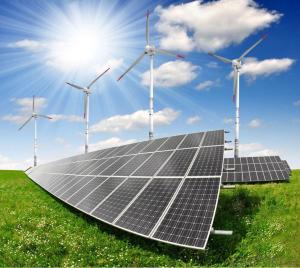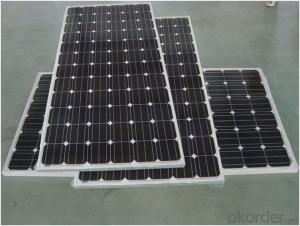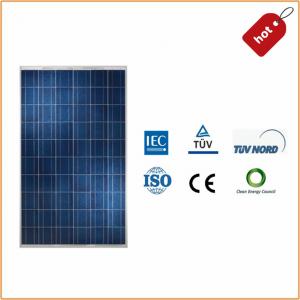Info Solar Panels:Poly Solar Panel Purchase from China Manufacturer
- Loading Port:
- Shanghai
- Payment Terms:
- TT OR LC
- Min Order Qty:
- 7875 watt
- Supply Capability:
- 10000000 watt/month
OKorder Service Pledge
OKorder Financial Service
You Might Also Like
Specification
Solar Module Summarize
Solar Module is the core part of solar PV power systems, also is the highest value part of it. The function of Solar Module is to convert the sun's radiation to electrical energy, or transfer it to battery and store in it, or to drive the load running.
The Product has been widely used in space and ground, it mainly used for power generation systems, charging systems, road lighting and traffic signs areas. It could offer a wide range of power and voltage, and with high conversion efficiency, and long service life.
Technical Parameter:
Good Quality 185W Solar Panel | |
Peak Power-Pmax(W) | 185W |
Open Circuit Voltage-Voc(V) | 44.2 |
Maximum Power Voltage-Vmp(V) | 36 |
Short Circuit Current-Isc(A) | 5.4 |
Maximum Power Current-Imp(A) | 5 |
Maximum System Voltage | 1000V DC |
Maximum Series Fuse Rating | 10A |
Power Tolerance | -1~+3% |
Temperature Coefficients of Pmax | -0.45%/℃ |
Temperature Coefficients of Voc | -0.348%/℃ |
Temperature Coefficients of Isc | 0.031%/℃ |
Nominal Operating Cell Temperature | 44.5±2℃ |
Standard Testing Condition(STC) | Irradiance:1000W/m²;Temperature:25℃;AM=1.5 |
Qualification Test Parameters | |
Operating Temperature | -40℃~+85℃ |
Storage Temperature | -40℃~+85℃ |
Pressure Bearing | ≥5400Pascal/m² |
Wind Bearing | ≥5400Pascal/m² |
Mechanical Characteristics | |
Cell Size | Mono 125*125mm±0.5 |
No.of Cells | 72pcs(6*12) |
Dimension | 1580*808*40mm |
Weight | 15.5Kg |
Glass | 3.2mm High Transmission,Low Iron |
Frame | Anodized Aluminum Alloy |
Junction Box | IP65Rated |
Internal Diodes | 3 Bypass Diodes |
Cable | 1*4.0mm² Length 900mm |
Production Flow :
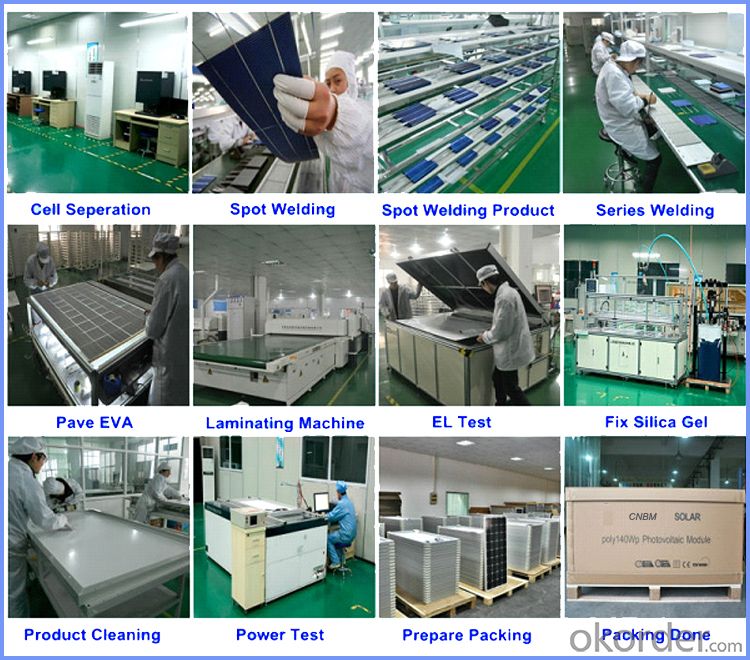
Product Show:
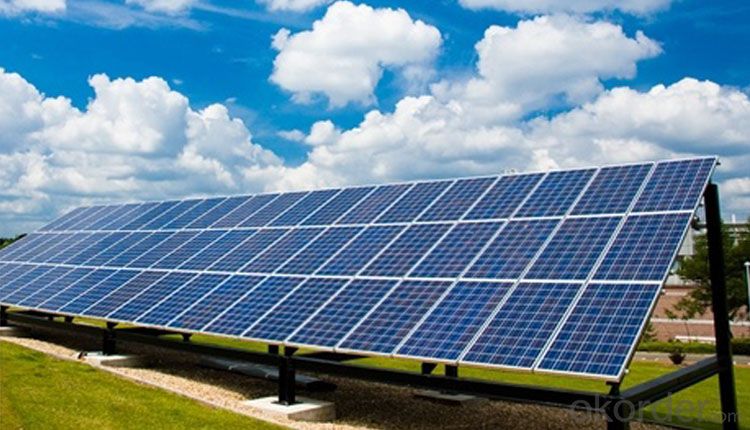
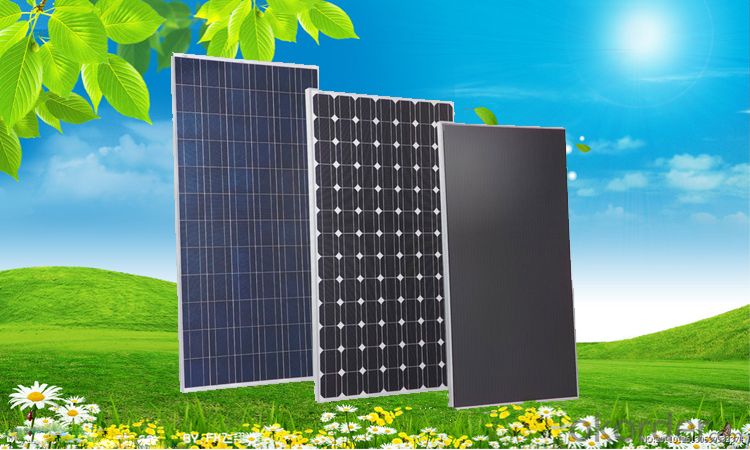
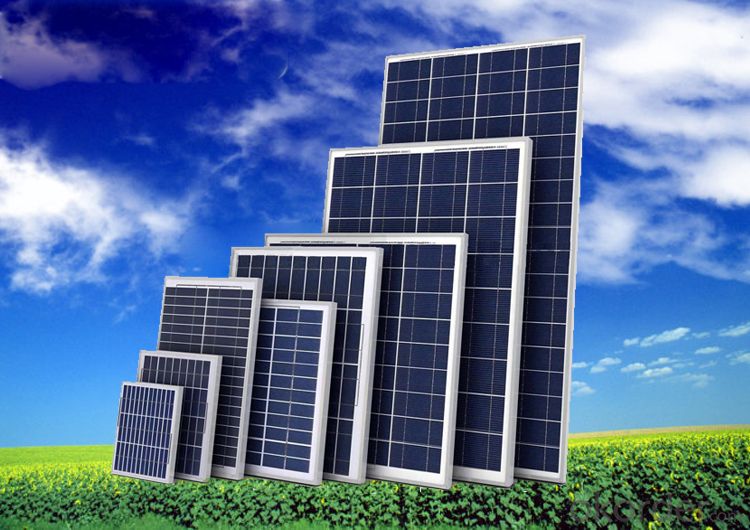
Packing & Shipping:
We have rich experience on how to pack the panels to make sure the safety on shipment when it arrives at the destination.
The normal size is packed by 25pcs/ carton / pallet. Paper carton for FCL shipping and wood carton for LCL shipping.
FAQ:
(1)What price for each watt?
It depends on the quantity, delivery date and payment terms.
(2)What is your size for each module? Can you tell me the Parameter of your module?
We have different series of panels in different output, both c-Si and a-Si. Please take the specification sheet for your reference.
(3)Can you provide the peripheral products of the solar panels, such as the battery, controller, and inverter? If so, can you tell me how do they match each other?
Actually we are only manufacturer of solar panels, but we could try to source them for you in China if you need. We could provide you an optimal system design to instruct you how to install.
- Q: Where can I find good instructions to build a cheap solar panel on my own?
- Lowe's has some good plans, i built one using a 4'x8' sheet of foam in a box 6 tall cut grooves in the foam paint it with Black latex paint put a inlet and outlet at opposite ends of the box 4 in dia cover the box with a clear sheet of plastic put a screen over the hole in the top a duct in the bottom with a fan hooked to a temp switch , [hint a fan limit switch out of an old furnace works ] run the fan duct in to the house
- Q: Are there any noise concerns with solar panels?
- No, solar panels do not produce any noise as they generate electricity from sunlight without any moving parts.
- Q: I'm a student trying to design a mounting structure for solar panels. I'm reading about passive trackers so as to track the sun for optimal energy production; but I am not fully quot;seeinghow it works. Can someone please help explain it to me, or at least send me a link(s) that could help explain it well?THANKS IN ADVANCED!! [and HAPPY HALLOWEEN!!]
- It appears to be relying upon a phase change of liquid to gas to liquid to balance the system and return it to the east in the morning.
- Q: Can solar panels be used in areas with frequent power outages?
- Yes, solar panels can be used in areas with frequent power outages. Solar panels generate electricity from sunlight, which means they can continue to produce power even when the main grid is down. However, for uninterrupted power supply during outages, it is important to have an energy storage system, such as batteries, to store excess energy generated during the day for use at night or during power outages.
- Q: my pool guy cleaned the filter and replaced the DE, but now my roof solar panels have started leaking. how do i stop the leak? does backwashing help in any way?
- If you do not isolate the solar system when backwashing your filter, you WILL pump DE into the panels and plug them and destroy them. At this point you may have to disconnect the panels, wash them from the RETURN SIDE (from the higher pipe and HOPE that the DE will flow out of the panels... most likely your pool guy just screwed up your solar real good... if the DE is plugging your panels, when winter comes your panels will split because they are holding water and the freezing water will split them... I hope your pool guy has insurance
- Q: Can solar panels increase the value of commercial properties?
- Yes, solar panels can increase the value of commercial properties. By installing solar panels, property owners can reduce their energy costs and generate sustainable power. This can make the property more attractive to potential buyers or tenants who prioritize sustainable practices and want to lower their environmental impact. Additionally, solar panels can also generate income through net metering or feed-in tariffs, further enhancing the property's value.
- Q: Can solar panels be damaged by hail or other weather conditions?
- Yes, solar panels can be damaged by hail or other severe weather conditions. Hailstones can cause cracks or dents on the surface of the panels, which can affect their efficiency or even render them inoperable. Other extreme weather conditions like high winds, heavy snow, or lightning strikes can also potentially cause damage to solar panels. However, it is important to note that modern solar panels are designed to withstand a certain level of weather-related stresses and are often tested for durability.
- Q: Can solar panels be installed on a balcony or terrace?
- Yes, solar panels can be installed on a balcony or terrace as long as there is sufficient sunlight exposure and structural support in place to hold the panels securely.
- Q: I have this question for extracredit and I dont get it?How many 2V,2W PV panels would be required to supply a load that requires a 48-volt supply that can push at least 2.8 amps of current, if you assume each panel puts out A at 2 V? And how are the panels configured to supply the power requirements of the load?
- 4 in series for the 48V, a rack of 3 sets wired in parallel to give the current. (total of 2 panels)
- Q: How do solar panels affect the property's corporate social responsibility?
- Solar panels have a positive impact on a property's corporate social responsibility (CSR) by reducing its carbon footprint and reliance on fossil fuels. By generating clean and renewable energy, solar panels contribute to sustainability efforts, promote environmental stewardship, and demonstrate a commitment to reducing greenhouse gas emissions. Additionally, solar panels can enhance the reputation of a property, attract environmentally conscious stakeholders, and align with CSR goals of promoting renewable energy and protecting the planet.
Send your message to us
Info Solar Panels:Poly Solar Panel Purchase from China Manufacturer
- Loading Port:
- Shanghai
- Payment Terms:
- TT OR LC
- Min Order Qty:
- 7875 watt
- Supply Capability:
- 10000000 watt/month
OKorder Service Pledge
OKorder Financial Service
Similar products
Hot products
Hot Searches
Related keywords
